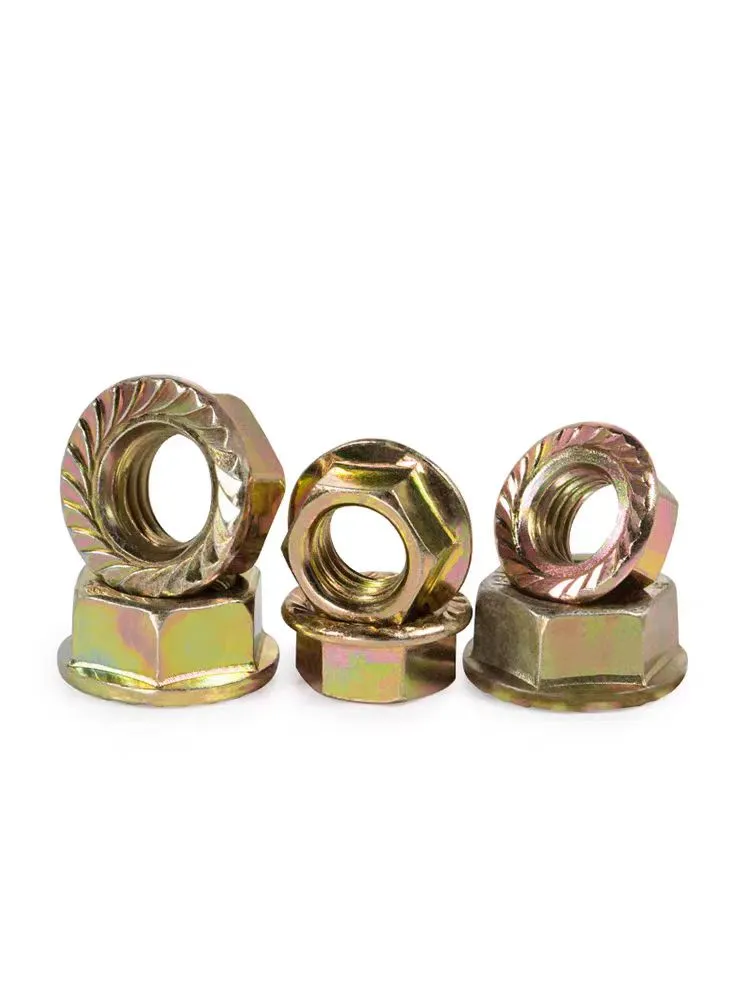

metric wave washers
พ.ย. . 05, 2024 05:31 Back to list
metric wave washers
Understanding Metric Wave Washers A Comprehensive Overview
Metric wave washers are specialized fasteners designed to provide a flexible, reliable solution in various mechanical applications. They play a critical role in reducing vibration, allowing for controlled movement, and accommodating thermal expansion in assemblies. Their unique design and functionality make them essential components in numerous industries, from automotive to aerospace and electronics.
Design and Construction
Wave washers, also known as wave springs or wave disc springs, are characterized by their wavy shape. This distinctive construction arises from a series of sinusoidal waves, which provide the washer with unique load-distributing properties. Typically made from high-quality materials, such as stainless steel, carbon steel, or various alloys, these washers are engineered to withstand significant stress and fatigue over time. Furthermore, metric wave washers are specifically designed to conform to international metric dimensions, ensuring compatibility with a wide array of fasteners and components.
The wavy profile allows the washer to compress and expand, which helps absorb shocks and vibrations. This flexibility is crucial in preventing loosening of bolts and screws, which can occur due to continuous movement and changing loads. By employing wave washers in an assembly, manufacturers can improve the longevity and reliability of the mechanical components.
Applications
Metric wave washers find extensive applications across multiple industries and sectors. In automotive engineering, for example, these washers are often used in suspension systems to enhance stability while absorbing shocks from road irregularities. In electronic devices, they play a pivotal role in securing circuit boards and other sensitive components, mitigating the risk of damage from vibrations.
Moreover, wave washers are invaluable in the machinery sector, where they are employed in assemblies exposed to dynamic loads. Their ability to maintain consistent force over a range of deflections makes them particularly suited for applications such as clutch assemblies, gearboxes, and actuators.
Advantages
metric wave washers

The use of metric wave washers brings several notable advantages. First, their design allows for a reduced amount of space compared to standard flat washers, making them ideal for compact assemblies. Additionally, wave washers can effectively replace multiple standard fasteners, thus streamlining assembly processes and reducing costs.
Furthermore, because these washers facilitate continuous contact, they help prevent slippage and loosening, which can lead to critical failures in mechanical systems. Their reliable performance in high-stress environments helps mitigate maintenance needs, leading to longer service intervals and decreased operational costs.
Selection Criteria
Choosing the right metric wave washer for a specific application involves several considerations. First, it is crucial to evaluate the load requirements of the assembly. The thickness and the height of the waves influence the spring characteristics; thus, selecting the right size is essential for optimal performance.
Material selection is equally important. Depending on the environment and potential exposure to corrosion, manufacturers may choose materials such as stainless steel for environments where moisture is present, or high-carbon steel for applications demanding higher strength.
Lastly, understanding the operational parameters, such as temperature and frequency of loading, can guide users in selecting wave washers that will perform effectively throughout their service life.
Conclusion
In conclusion, metric wave washers are versatile and practical components that offer solutions to various engineering challenges. Their ability to absorb vibrations, accommodate thermal expansion, and maintain consistent fastening pressure makes them indispensable across numerous fields. By understanding their design and applications, engineers and manufacturers can optimize their use, leading to enhanced performance and reliability in mechanical assemblies. As technology continues to evolve, the demand for such innovative fastening solutions will likely grow, underscoring the importance of metric wave washers in modern engineering.
Latest news
-
Premium Fasteners Manufacturer | AI-Driven Solutions
NewsAug.01,2025
-
Hot Dip Galvanized Bolts - Hebei Longze | High Strength, Corrosion Resistance
NewsAug.01,2025
-
High-Strength Hot Dip Galvanized Bolts - LongZe | Corrosion Resistance, Custom Sizes
NewsAug.01,2025
-
Best Self Tapping Screws for Drywall - Fast & Secure Installation
NewsJul.31,2025
-
High-Strength Hot Dip Galvanized Bolts-Hebei Longze|Corrosion Resistance&Customization
NewsJul.31,2025
-
Hot Dip Galvanized Bolts-Hebei Longze Metal Products|Corrosion Resistance&High Strength
NewsJul.31,2025

